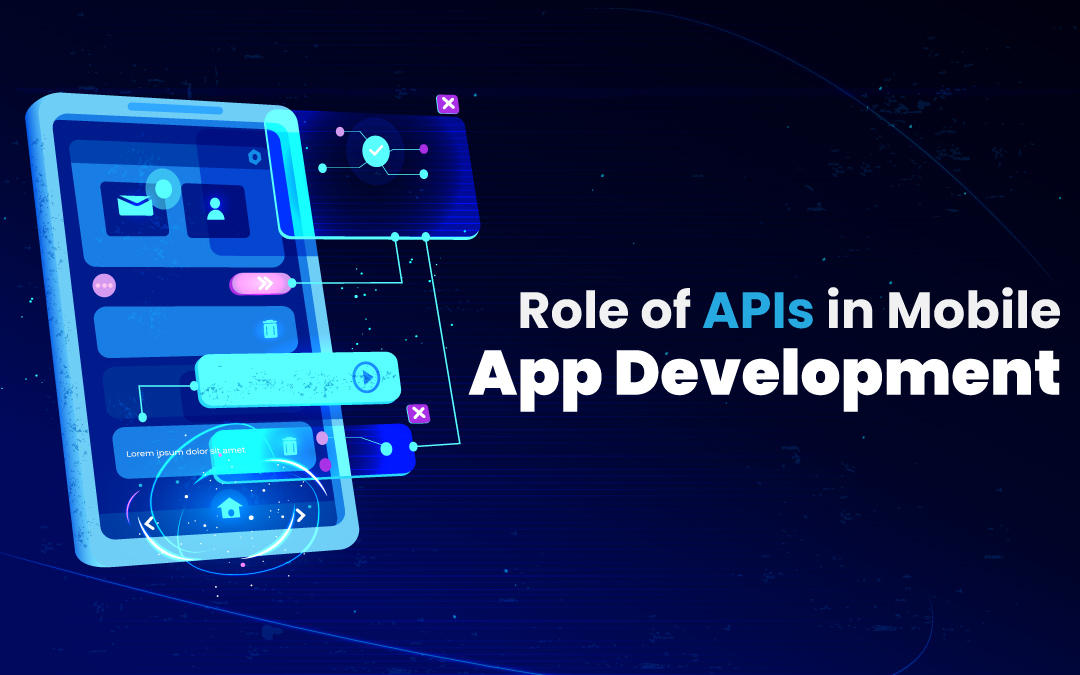
Wondering how mobile apps communicate and share data with external devices? Thinking about how they seamlessly manage to exchange information with software systems and applications? The answer to this is 'with the integration of API'. In this article, we will explore what an API is along with the role that it plays in mobile app development services and processes, highlighting its benefits.
What is an API?
API is an acronym for Application Programming Interface, which is a set of rules and protocols allowing one application to interact with another and request data and services from one another. Or, in simple words, we can define them as the set of routines that allow developers to share assets between applications.
Diving deep into the acronym application here is considered the software based on the concept of an algorithm that takes input and generates an output. Programming is the process of developing an application in a computer language. Also, it enables application users to access data from another software, database, or application. An interface is the enabler that helps the users access different features of applications.
As a gist, we can say that API is the service carrier from an expert to a distributor, providing some additional advantages to its customers. Examples of a few popular APIs are Google Maps API, Facebook API, YouTube API, etc.
Let’s explore how these APIs are helping and making a difference in mobile app development.
Role of API in Mobile App Development Process
Smooth Access to Information
Among the many other benefits of APIs in mobile applications, the most prominent is that they allow users to access information smoothly from one device to another. Additionally, it also allows them to read as well as write the accessed data.
Uninterrupted Communication
It is easier with an API to communicate with other applications and databases. This makes working with the application smoother on variant platforms like wearables, earphones, web, or mobile.
Faster Sign-Ups
With APIs, it is very easy to integrate third-party authentication providers like Facebook, Google, etc. For instance, if a mobile app has a Facebook API, then the users can easily share content, reviews, and access information right from their Facebook profiles. The one-click and faster signups make the users sign in easily without creating new credentials.
Reduced Development Time
The pre-built functionalities and services all set to be integrated into mobile apps significantly contribute to development time reduction. The reuse of existing code and functionality spares the developers from building everything from scratch.
Security & Authentication
With APIs, mobile apps get secure authentication mechanisms that ensure that user data and information are protected. On top of that, data encryption and access control enhance the overall application security, ultimately reducing the chances of data breaches and security attacks.
Enhanced Functionality
Using APIs, developers can incorporate advanced functionalities and features into the mobile application without spending too much time and money. For example, integrating a language translation API can enable multiple language support without extensive language processing and development.
Scalability
API offers a scalable approach to mobile app development. The evolution of the app gives developers the privilege to add new features or update the existing ones just with APIs, hence catering to and adapting to the changing requirements without major overhauls.
Wrapping Up
In today's fast-evolving digital landscape, APIs have become the backbone of mobile app development, ensuring seamless connectivity and enriched user experiences. From facilitating uninterrupted communication between platforms to reducing development time and costs, APIs empower developers to focus on innovation rather than reinventing the wheel. Their scalability and ability to incorporate advanced functionalities further make them an indispensable tool in the app development process.
Moreover, API development itself continues to evolve, adapting to new technologies such as artificial intelligence, blockchain, and IoT. This progression opens up endless possibilities for crafting apps that are smarter, more secure, and user-centric. Whether you're a business or a developer, leveraging APIs wisely can drive the success of mobile applications by keeping them future-ready.
In essence, APIs are not just tools but enablers of a more connected, efficient, and scalable mobile ecosystem. They simplify complex challenges, enhance functionalities, and ensure that apps deliver exceptional value to users, meeting the growing demands of modern technology. Embracing API development is not just a trend but a necessity for anyone looking to stay ahead in mobile app innovation.
Share this post
Leave a comment
All comments are moderated. Spammy and bot submitted comments are deleted. Please submit the comments that are helpful to others, and we'll approve your comments. A comment that includes outbound link will only be approved if the content is relevant to the topic, and has some value to our readers.

Comments (0)
No comment